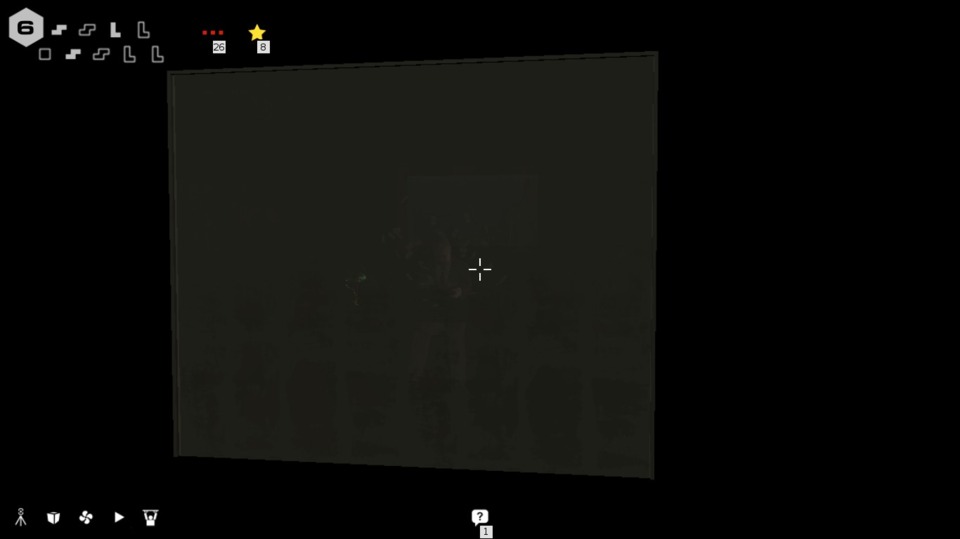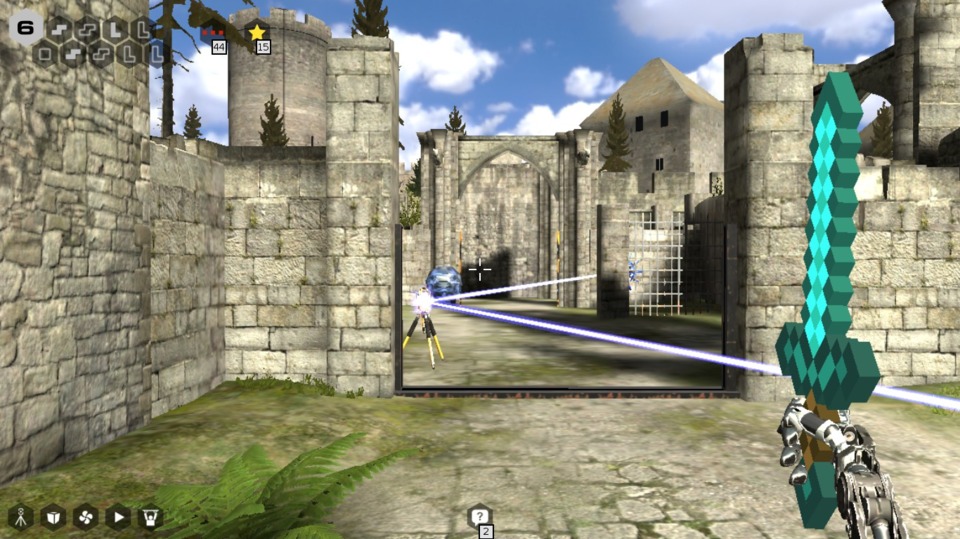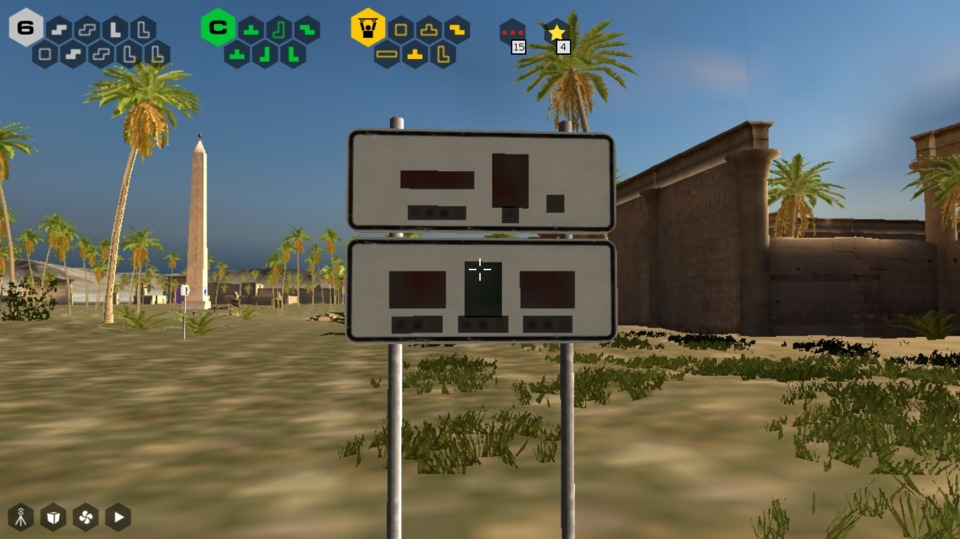Mento's May Mastery '16: Day Three: The Talos Principle
By Mento 2 Comments
The Talos Principle

I might have got a little carried away. I figured I could complete the game and write it up with time to spare, but it looks like I'm a couple hours late today. That game just keeps going, huh?
Naturally, almost everything new I've learned today concerns the last few areas of the game, the last of the unlockable puzzle elements (it's a piece of plastic. Don't ask) and some fairly spoilerish stuff about how the game concludes and the true nature of Elohim, the Talos project, the world and your place in it. Greetz to my posse who have been with me from the beginning: Sheep, @, 1w/Faith, DOG, TheShepard, Uriel and, uh, Giant Bomb user and former Screened moderator @patvb, who I guess is the only person on my friends list to have beaten the game.

Instead, something resembling a final review. This won't be quite as in-depth as the real thing, because it's late as hell and I appear to have spent a few hours past my bedtime telling a bunch of Tetris blocks to sit and spin, but I hope it provides a more complete impression of the game after those initial knee-jerk considerations from the game's first May Mastery update.
The Talos Principle is all about mystery. There's the little mysteries, which collectively encompass the whole game and its modular puzzle chambers - the player is free to bounce between these if they ever get stuck, the intent being that working out other puzzle solutions helps to get the brain juices flowing again after a roadblock. Then there are the mysteries layered over those puzzles: the special stars, which can be found inside puzzle chambers or sometimes outside them; deducing what the different-colored tetrominos mean; figuring out how to access the top-secret "messenger" areas; or finding one of the game's plethora of dumb Easter eggs. Then you have the bigger mysteries on top of that, and these relate to the story the game is telling: Who or what is Elohim? What is the deal with that contentious library bot on the archive computers who keeps calling me an idiot? Why does the world keep glitching out (in a deliberate "the game designers intended this" sort of way, mind)? What happened to everyone? If the human race died out, what killed them? What's the significance of all this ancient architecture? Who are these guys leaving QR codes all over the walls, and how did they paint them to the necessary degree of precision for them to be read if all they had to use was a bucket of white paint?

But then the game decides that there's greater mysteries still to throw at the player. And for this, the game goes full "loquacious first year philosophy major after a few drinks" on you: What is life? What is consciousness? Are animals conscious? If not, do they have the capacity to be? Can a robot can be conscious? If we created an artificial facsimile that's close enough to being conscious, would that suffice? Would we even know the difference if pushed? Will all chatbots become horrible racists regardless of their level of technological sophistication, resulting in some terrifying hybrid Godwin/Turing law of robotics? If I have to robot jog all the way back to the second area of the game to access the last few puzzles and no-one is around to hear me complain, can I still make a crappy R2 Detour joke?
It's said (by hippies, mostly) that Zen koans are meant to put you into a contemplative mood, which makes you more receptive to meditation and deep thought. I think a similar case could be made with how The Talos Principle never stops haranguing you with questions, from as low-key and in-the-moment as "how the hell do I get that laser beam to point over there?" to as mind-frazzling and unanswerable as "what does it mean to be a human being?"; it all puts you in a quizzical frame of mind, and as you seek answers to your immediate puzzle problems, and eventually the circumstances behind the game's plot, you're then prone to start thinking about the bigger stuff the game poses too.

It helps that the game is superlatively chill. I'm not sure if there's a puzzle game bible out there that designers consult in time of need, but its first commandment would be to establish a calm and peaceful atmosphere, via relaxing ambient music and picturesque landscapes, to both encourage the flow of positive mental energy required to complete the puzzles and assuage frustrations when those bright ideas don't quite pan out. The beeping of those aggravating ball droids aside, The Talos Principle has a serenity to it that not only enhances the puzzles but befits its narrative of a desolate kingdom filled with the relics and puzzles of long-dead civilizations. It doesn't matter that they might not be real; if instead of wandering around the ruins of an extinct civilization, you're wandering around the mainframe of one its remaining supercomputers. It all puts me to mind of I Have No Mouth, And I Must Scream (last year's inaugural May Mastery game, coincidentally enough) in that you're jumping through hoops at the behest of a god-like computer that has created everything around you, and struggling to make sense of its motives, what it wants from you and what may have happened to your fellow humans during your virtual imprisonment. But, as I intimated, in a considerably more chill fashion.
If you're not interested in the philosophy stuff and just want a face value take on The Talos Principle as a first-person puzzle game with all the physics and time manipulation and light refracting you might expect, I'd rate it very highly indeed. The modular format means you never have to bash your head against one puzzle for long, both because each one is so compact and because you almost always have other puzzles to check out if an epiphany never arrives, and it's likely you have all the tools you need to solve whatever's in front of you unless otherwise explicitly stated by the signage and some telltale wobbly blue glowing gaps where necessary puzzle pieces would otherwise be. There's a distinct enormity to the game too; I didn't anticipate that I would spend a full three days playing through it, and I imagine at some point I hit around 100 discrete puzzles with the stars added in (which all require an additional level of puzzle-solving, I'll add). It looks and sounds great, if (purposefully) laid-back and no-frills, and I'm still perplexed that I could get it to run with anything approaching a framerate in the double figures given how many ominous warning boxes I clicked through every time I tried to run it. All in all, whether you choose to engage with its philosophical hokum or no, The Talos Principle is a fine way to give your gray matter some exercise.

The Verdict: Completed within the three day limit. I'd safely recommend this one: Five stars.
